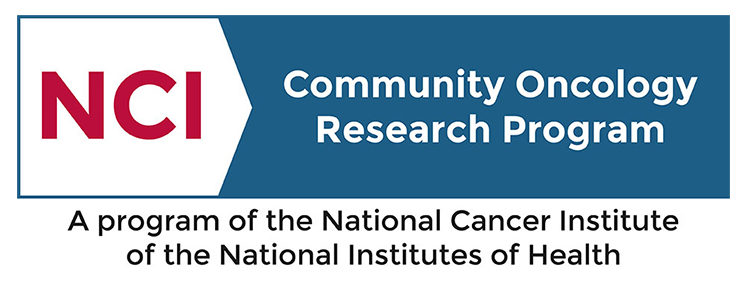What are Clinical Trials?
Clinical trials bring the latest research to the fight against cancer and blood diseases. The many advances made in the treatment of cancer and blood diseases over the past three decades began as research and clinical trials. As a research volunteer, you play a pivotal role in the pursuit of new and more successful treatments. You will also have access to new procedures and new medications before they are available to the general public.
Clinical trials improve our understanding of how to treat and prevent cancers. Trials are conducted to establish guidelines for the standard of care and to evaluate these treatments in a controlled and safe setting. Clinical trials can help improve the care of cancer patients.
Contact Us
If you have questions about clinical trials, you can reach us by:
Email: research@wmcc.org
Phone: 269.373.7443
Why Participate in a Clinical Trial?
You may choose to participate in clinical trials for a variety of reasons. Volunteering for research studies can provide access to promising new drugs before they are available to the general public. While there is always a chance that a new treatment will prove to be less effective than hoped, there is also reason to believe that it will be as good or better than current treatments. Every effort is made to ensure your safety; the care from the physicians during the study is highly controlled and monitored.
Here are some helpful links to videos from the National Cancer Institute’s Community Oncology Research Program that may answer your questions:
What Kinds of Trials are Available?
Clinical trials study ways to prevent, detect, diagnose, control, and treat disease. Some trials study the impact that treatment or disease can have on our overall well-being. Studies also look at ways to improve patient comfort and quality of life (including pain management).
Trials that test new modalities may involve surgery, radiation therapy, and chemotherapy. Alone or in combination, these types of treatments can cure many patients and prolong the lives of others.
Clinical trials are currently available through West Michigan Cancer Center Radiation & Surgical Specialties and our affiliated resources.
Please click below for a list of current clinical trials.
This list contains all the current, active, approved protocols for the Cancer Research Consortium of West Michigan—a grant-funded program through the National Cancer Institute Clinical Oncology Research Program (NCORP).
NCORP-approved studies are available through our affiliation with the following research bases: Alliance, ECOG-ACRIN, NRG Oncology and SWOG.
If you would like further information on these or other clinical trials, please call the Cancer Research Consortium of West Michigan at (269) 373-7443. For information regarding pediatric studies, please call (269) 341-6350.
A071401: Phase II Trial of SMO/AKT/NF2 Inhibitors in Progressive Meningiomas with SMO/AKT/NF2 Mutations
NRG BN011 – A Phase III Trial of Lomustine-Temozolomide Combination Therapy Versus Standard Temozolomide in Patients with Methylated MGMT Promoter Glioblastoma
A012103: OptimICE-pCR: De-Escalation of Therapy in Early-Stage TNBC Patients Who Achieve pCR After Neoadjuvant Chemotherapy with Checkpoint Inhibitor Therapy
A012301: LoTam: A Randomized, Phase III Clinical Trial of Low-Dose Tamoxifen for Selected Patients with Molecular Low-Risk Early-Stage Breast Cancer
A191901: Optimizing Endocrine Therapy Through Motivational Interviewing and Text Interventions
MA.39: Tailor RT: A Randomized Trial of Regional Radiotherapy in Biomarker Low Risk Node Positive Breast Cancer
NRG-CC011: Cognitive Training for Cancer Related Cognitive Impairment in Breast Cancer Survivors: A Multi-Center Randomized Double-Blinded Controlled Trial
NRG BR007: Phase III Clinical Trial Evaluating De-Escalation of Breast Radiation for Conservative Treatment of Stage 1, Hormone Sensitive HER2-Negative, Oncotype Recurrence Score < 18 Breast Cancer (DEBRA) De-Escalation of Breast Radiation
NRG-BR009: A Phase III Adjuvant Trial Evaluating the Addition of Adjuvant Chemotherapy to Ovarian Function Suppression plus Endocrine Therapy in Premenopausal Patients with pN0-1, ER-Positive/HER2-Negative Breast Cancer and an Oncotype Recurrence Score ≤ 25 (OFSET)
S1703: Randomized Non-Inferiority Trial Comparing Overall Survival of Patients Monitored with Serum Tumor Marker Directed Disease Monitoring (STMDDM) versus Usual Care in Patients with Metastatic Hormone Receptor Positive Breast Cancer
S2206: Phase III Trial of Neoadjuvant Durvalumab (NSC 778709) plus Chemotherapy versus Chemotherapy Alone for Adults with MammaPrint High 2 Risk (MP2) Hormone Receptor (HR) Positive / Human Epidermal Growth Factor Receptor (HER2) Negative Stage II-III Breast Cancer
S2212: Shorter Anthracycline-Free Chemo Immunotherapy Adapted to Pathological Response in Early Triple Negative Breast Cancer (SCARLET), A Randomized Phase III Study
S2012: Randomized Phase II/III Trial of First Line Platinum/Etoposide with or without Atezolizumab (NSC#783608) in Patients with Advanced or Metastatic Poorly Differentiated Extrapulmonary Neuroendocrine Carcinomas (NEC)
A021806: A Phase III Trial of Perioperative versus Adjuvant Chemotherapy for Resectable Pancreatic Cancer
A022106: Phase II/III Second-Line Nabplagem vs. Nab-Paclitaxel/Gemcitabine in BRCA1/2 or PALB2 Mutant Metastatic Pancreatic Ductal Adenocarcinoma (PLATINUM)
CCTG CO32: The NEO-RT Trial: A phase 3 randomized trial of neoadjuvant chemotherapy, excision and observation versus chemoradiotherapy for early rectal cancer
EA2185: Comparing the Clinical Impact of Pancreatic Cyst Surveillance Programs
NRG-GI004: Colorectal Cancer Metastatic dMMR Immuno-Therapy (COMMIT) Study: A Randomized Phase III Study of mFOLFOX6/Bevacizumab Combination Chemotherapy with or without Atezolizumab or Atezolizumab Monotherapy in the First-Line Treatment of Patients with Deficient DNA Mismatch Repair (dMMR) Metastatic Colorectal Cancer
NRG-GI008: Colon Adjuvant Chemotherapy Based on Evaluation of Residual Disease (CIRCULATE-US)
S2001: Randomized Phase II Clinical Trial of Olaparib + Pembrolizumab vs. Olaparib Alone as Maintenance Therapy in Metastatic Pancreatic Cancer Patients with Germline BRCA1 or BRCA2 Mutations
A031803: Phase II Trial of Intravesical Gemcitabine and MK-3475 (pembrolizumab) in the Treatment of Patients with BCG-Unresponsive Non-Muscle Invasive Bladder Cancer
A032103: “MODERN: An Integrated Phase 2/3 and Phase 3 Trial of MRD-Based Optimization of Adjuvant Therapy in Urothelial Cancer”
A032201: Short TeRm Intensified Pembrolizumab (KEytruda) and Tivozanib for High-risk renal cell carcinoma – STRIKE
NRG GU009: Parallel Phase III Randomized Trials for High Risk Prostate Cancer Evaluating De-Intensification for Lower Genomic Risk and Intensification of Concurrent Therapy for Higher Genomic Risk with Radiation (PREDICT-RT*)
NRG GU010: Parallel Phase III Randomized Trials of Genomic-Risk Stratified Unfavorable Intermediate Risk Prostate Cancer: De-Intensification and Intesification Clinical Trial Evaluation (GUIDANCE)
NRG GU011: A Phase II Double-Blinded, Placebo Controlled Trial of Prostate Oligometastatic Radiotherapy with or without Androgen Deprivation Therapy in Oligometastatic Prostate Cancer (PROMETHEAN)
S1931: Phase III Trial of Immunotherapy-Based Drug Combination Therapy with or without Cytoreductive Nephrectomy for Metastatic Renal Cell Carcinoma
S1937: A Phase III Randomized Trial of Eribulin (NSC #707389) with or without Gemcitabine versus Standard of Care (Physician’s Choice) for Treatment of Metastatic Urothelial Carcinoma Refractory to, or Ineligible for, Anti PD1/PDL1 Therapy
S2200: A Phase II Randomized Trial of Cabozantinib With or Without Atezolizumab in Patients with Advanced Papillary Renal Cell Carcinoma (PAPMET2)
Gilead GS-US-682-6769: A Randomized, Open-Label, Phase 3 Study of Sacituzumab Govitecan Versus Treatment of Physician’s Choice in Participants with Endometrial Cancer Who Have Received Prior Platinum-Based Chemotherapy and Anti-PD-1/PD-L1 Immunotherapy (ASCENT-GYN-01)
NRG-CC008: A Non-Randomized Prospective Clinical Trial Comparing the Non-Inferiority of Salpingectomy to Salpingo-oophorectomy to Reduce the Risk of Ovarian Cancer Among BRCA1 Carriers [SOROCk]
NRG-GY036: A Phase III Trial of One vs. Two Years of Maintenance Olaparib, with or Without Bevacizumab, in Patients with BRCA1/2 Mutated or Homologous Recombination Deficient (HRD+) Ovarian Cancer Following Response to First Line Platinum-Based Chemotherapy
TAPUR: The Targeted Agent and Profiling Utilization Registry Study
EA3132: Phase II Randomized Trial of Adjuvant Radiotherapy with or without Cisplatin for p53 Mutated, Surgically Resected Squamous Cell Carcinoma of the Head and Neck (SCCHN)
EA3161: A Phase II/III Randomized Study of Maintenance Nivolumab versus Observation in Patients with Locally Advanced, Intermediate Risk HPV Positive OPCA
RTOG 1216: Randomized Phase II/III Trial of Adjuvant Radiation Therapy with Cisplatin, Docetaxel-Cetuximab, or Cisplatin-Atezolizumab in Pathologic High-Risk Squamous Cell Cancer of the Head and Neck
A041501: A Phase III Trial to Evaluate the Efficacy of the Addition of Inotuzumab Ozogamicin (a Conjugated Anti-CD22 Monoclonal Antibody) to Frontline Therapy in Young Adults (Ages 18-39 Years) with Newly Diagnosed Precursor B-Cell ALL
Dana Farber 14-174: Study of Precursor Hematological Malignancies to Assess the Relationship Between Molecular Events of Progression and Clinical Outcome
EAQ211: Social Genomic Mechanisms of Health Disparities among Adolescent and Young Adult (AYA) Survivors of Hodgkin and Non-Hodgkin Lymphoma
S1608: Randomized Phase II Study in Early Relapsing or Refractory Follicular Lymphoma
S1905: A Phase I/II Study of AKR1C3-Activated Prodrug OBI-3424 (OBI-3424) in Patients with Relapsed/Refractory T-Cell Acute Lymphoblastic Leukemia (T-ALL) / T-Cell Lymphoblastic Lymphoma (T-LBL)
S1925: Randomized, Phase III Study of Early Intervention with Venetoclax and Obinutuzumab versus Delayed Therapy with Venetoclax and Obinutuzumab in Newly Diagnosed Asymptomatic High-Risk Patients with Chronic Lymphocytic Leukemia/Small Lymphocytic Lymphoma (CLL/SLL): Evolve CLL/SLL Study
S2308: Randomized Phase III Study of Mosunetuzumab vs. Rituximab for Low Tumor Burden Follicular Lymphoma
A081801: Integration of Immunotherapy Into Adjuvant Therapy For Resected NSCLC: ALCHEMIST CHEMO-IO
A082002: A Randomized Phase II/III Trial of Modern Immunotherapy Based Systemic Therapy with or Without SBRT for PD-L1-Negative, Advanced Non-Small Cell Lung Cancer
EA5162: Phase II Study of AZD9291 (Osimertinib) in Advanced NSCLC Patients with Exon 20 Insertion Mutations in EGFR
EA5221: A Randomized Phase III Trial of Chemo-Immunotherapy vs Immunotherapy Alone for the Vulnerable Older Adult with Advanced Non-Small Cell Lung Cancer: The ACHIEVE Study
LungMAP: A Master Protocol to Evaluate Biomarker-Driven Therapies and Immunotherapies in Previously-Treated Non-Small Cell Lung Cancer (Lung-MAP Screening Study)
NRG-LU007: Randomized Phase II/III Trial Of Consolidation Radiation + Immuno-therapy for ES-SCLC: RAPTOR trial
NRG-LU008: Phase III Prospective Randomized Trial of Primary Lung Tumor Stereotactic Body Radiation Therapy Followed by Concurrent Mediastinal Chemoradiation for Locally-Advanced Non-Small Cell Lung Cancer
S1827: A Randomized Phase III Trial of MRI Surveillance with or without Prophylactic Cranial Irradiation (PCI) in Small-Cell Lung Cancer (MAVERICK)
A091903: A Randomized Phase II Trial of Adjuvant Nivolumab with or without Cabozantinib in Patients with Resected Mucosal Melanoma
EA6141: Randomized Phase II/III Study of Nivolumab Plus Ipilimumab Plus Sargramostim Versus Nivolumab Plus Ipilimumab in Patients with Unresectable Stage III or Stage IV Melanoma
EA6192: A Phase II Study of Biomarker Driven Early Discontinuation of anti-PD-1 Therapy in Patients with Advanced Melanoma (PET-Stop)
S2015: Melanoma Margins Trial (MelMarT-II): A Phase III, multi-centre, multi-national randomised control trial investigating 1cm vs. 2cm wide excision margins for primary cutaneous melanoma
9846: Patient-Derived Models Tissue Procurement Protocol for the National Cancer Institute (NCI)
DCP-001: Use of a Clinical Trial Screening Tool to Address Cancer Health Disparities in the NCI Community Oncology Research Program
EAQ222CD: Effectiveness of Out-of-Pocket Cost COMmunication and Financial Navigation (CostCOM) in Cancer Patients
EAY191: Molecular Analysis for Combination Therapy Choice (ComboMATCH)
EAY191-A3: A ComboMATCH Treatment Trial: Palbociclib and Binimetinib in RAS-Mutant Cancers
S2101: Biomarker Stratified CaboZantinib (NSC#761968) and NivOlumab (NSC#748726) (BiCaZO) – A Phase II Study of Combining Cabozantinib and Nivolumab in Participants with Advanced Solid Tumors (IO refractory Melanoma or HNSCC) Stratified by Tumor Biomarkers – an immunoMATCH Pilot Study
TAPUR: The Targeted Agent and Profiling Utilization Registry Study
EAA173: Daratumumab to Enhance Therapeutic Effectiveness of Revlimid in Smoldering Myeloma (DETER-SMM)
EAA181: Effective Quadruplet Utilization After Treatment Evaluation (EQUATE): A Randomized Phase 3 Trial for Newly Diagnosed Multiple Myeloma Not Intended for Early Autologous Transplantation
S2209: A Phase III Randomized Trial for Newly Diagnosed Multiple Myeloma (NDMM) Patients Considered Frail or in a Subset of “Intermediate Fit” Comparing Upfront Three-drug Induction Regimens Followed by Double- or Single-Agent Maintenance
A211901: Reaching Rural Cancer Survivors who Smoke Using Text-Based Cessation Interventions
A212102: Blinded Reference Set for Multicancer Early Detection Blood Tests
NRG-CC011: Cognitive Training for Cancer Related Cognitive Impairment in Breast Cancer Survivors: A Multi-Center Randomized Double-Blinded Controlled Trial
S1703: A Randomized Non-Inferiority Trial Comparing Overall Survival of Patients Monitored with Serum Tumor Marker Directed Disease Monitoring (STMDDM) versus Usual Care in Patients with Metastatic Hormone Receptor Positive Breast Cancer
URCC 22063: Longitudinal Observational Trial to Uncover Subtypes of Cancer Cachexia “LOTUS-CC”
WF2304-A172401: Complementary Options for Symptom Management In Cancer (COSMIC): Assessing Benefits and Harms of Cannabis and Cannabinoid Use Among a Cohort of Cancer Patients Treated in Community Oncology Clinics
Our Clinical Trial Partnerships
- Cancer Research Consortium of West Michigan
- National Cancer Institute Community Oncology Research Program
- Dana Farber Cancer Institute
- Pharmaceutical and Biotech Collaborations
Cancer Research Consortium of West Michigan (CRCWM)
Eleven hospitals and health care systems, including West Michigan Cancer Center Radiation & Surgical Specialties, are part of a consortium called the Cancer Research Consortium of West Michigan (CRCWM). This consortium brings the highest level of clinical trials from the National Cancer Institute (NCI) to the men, women, and children of our communities.
National Cancer Institute Community Oncology Research Program (NCORP)
The NCI supports the consortium as a National Cancer Institute Community Oncology Research Program (NCORP). This collaboration provides new cutting edge clinical cancer trials to patients in our community.
CRCWM members include:
- West Michigan Cancer Center / Kalamazoo
- Bronson Battle Creek / Battle Creek
- Corewell Health Butterworth Hospital / Grand Rapids
- Corewell Health Lakeland Hospital / Saint Joseph
- Corewell Health Reed City Hospital / Reed City
- Michigan State University College of Human Medicine / Grand Rapids
- Munson Medical Center / Traverse City
- Trinity Health Grand Rapids Hospital / Grand Rapids
- Trinity Health Muskegon Hospital / Muskegon
- University of Michigan Health-West / Wyoming
- Van Andel Research Institute / Grand Rapids
More information about the Cancer Research Consortium of West Michigan can be found at www.crcwm.org. Research conducted through the CRCWM NCORP grant is supported by the National Cancer Institute of the National Institutes of Health under Award Number UG1CA189860.
Trial Safety
Respect for Persons – the participant should be given the information in a format they can understand and given the option to participate or decline the trial voluntarily.
Beneficence – protect the patient by doing more good than harm.
Justice – individuals should have the same opportunity to join a trial regardless of financial, racial, or demographic status.
Safety committees are in place to ensure the well-being of participants in all clinical trials.
Questions to Ask Before Participating
If you are thinking about taking part in a clinical trial, there are some important questions you should ask:
- What is the purpose of the study?
- What does the study involve? What kinds of tests and treatments?
- What is likely to happen in my case with my participation in this study?
- Are there standard treatments for my case? And if a study is chosen, how do they compare?
- What other choices do I have? Advantages and disadvantages?
- How could the study affect my daily life?
- What side effects could I expect from the study?
- How long will the study last? Will it require an extra time commitment on my part?
- Will I have to be hospitalized? If so, for how long?
- Will I have any expenses? Will any part of the treatment be free?
- If I were harmed as a result of the research, what treatment would I be entitled to?
- What type of long-term follow-up care is part of the study?


Research Team
Our team consists of physicians, nurses, regulatory specialists, and clinical research associates.
The research department facilitates the day to day operations of the clinical trials by ensuring the following.
- Regulatory documents comply with federal guidelines.
- Data is accurate and timely.
- Care is given according to the clinical trial guidelines.
IRB (Institutional Review Board)
West Michigan Cancer Center IRB oversees all research studies, and safeguards the rights and welfare of research participants.
As regulated by the United States Department of Health & Human Services, it comprises at least five members of varying backgrounds. The IRB membership includes community members with non-scientific backgrounds, as well as healthcare professionals with the competency to review research. WMCC’s IRB meets every month to review proposals for research studies. Research at WMCC follows regulations and guidelines established by:
- The U.S. Food and Drug Administration (FDA)
- The Office for Human Research Protection (OHRP)
- The International Conference on Harmonisation (ICH)
- National Institutes of Health (NIH)
We make sure research complies with the Health Insurance Portability and Accountability Act of 1996 (HIPAA). Also called the Privacy Rule, this law controls access to and disclosure of a patient’s confidential health information.






